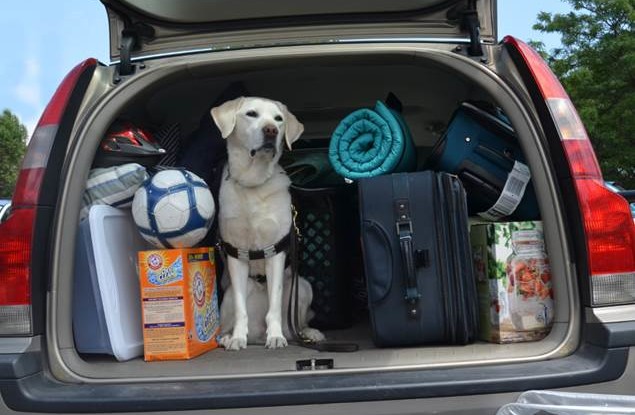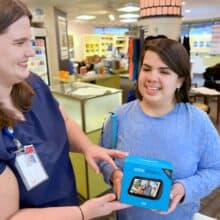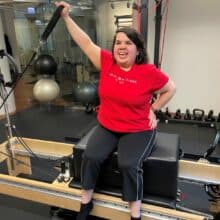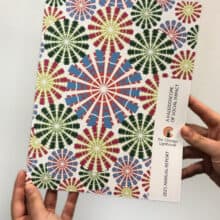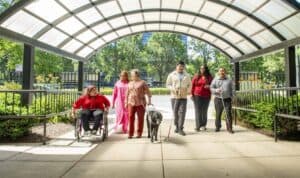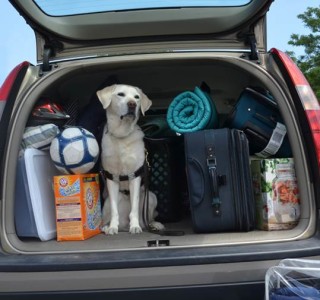
Getting Yourself and your Canine Ready for College!
The hustle and bustle of preparing for college can be chaotic for all students. Blind and visually impaired students need to take additional steps – and equipment – to prepare for this exciting journey. I spoke with Adnana Saric who graduated from Loyola University in 2013 with a major in Sociology and minor in Women and Gender Studies. She (and her loyal four-legged friend and guide Yani) will give readers a better perspective on what transitioning to college can be like for blind students.
Adnana knows that a lot of what it takes to succeed in college is independence, and she was ready and eager to take on the challenge! Speaking with her disability services office and learning how to commute to and navigate campus independently were just a few of the steps she took well in advance of the beginning of her freshman year.
While Adnana believes she got all the necessary accommodations to succeed in high school, her experience in college was more positive.
“Even though Loyola was one of the schools that has not had a completely blind person in many years, they [disability services] were better than in high school.”
Adnana recalls a particular example when she was told by staff in her high school that her assistive technology was not compatible with PDF files, therefore she would not be able to access the content. On the other hand, staff at Loyola were always willing to work with her and find a solution. This attitude applied to other situations as well.
“There was never a “forget about it,” it was more how do we make this work, how do we access this,” she said.
Creativity and problem solving skills are useful for everyone, but more so for individuals with disabilities. This came in handy for Adnana throughout her years in college. Hardcopies of Braille textbooks are usually not available for college students, but she – like other successful blind students – found alternative ways of accessing class materials. Seeking the assistance of readers to describe illustrations and read exams was an effective way of accessing subjects that were highly visual, such as math and science.
Although Adnana encourages blind and visually impaired students to be as independent as possible, she also emphasizes the importance of utilizing any available resources. She believes that even if a student is perfectly capable of seeking accommodations and resources, he or she should still turn to their disability services office for assistance because everyone can learn from it.
“Not only will it be beneficial to you, it’ll be beneficial to the people that come to that school afterword,” she says.
Adnana has a final piece of advice for blind college students.
“Don’t blame other people, don’t make up excuses. Go out there, do what you have to do in order to be independent and successful.”
Clearly, Adnana is an example that when blind students are well prepared and willing to take on new challenges, they can and will be successful in college. Things like inaccessible print materials, learning to navigate a college campus, etc. are simple nonsense challenges that can be overcome with the right skills and attitude.
We at Sandy’s View would like to congratulate Adnana for her new college venture. This time, she (and Yani) will attend Adler University to obtain her Master’s Degree in Rehabilitation Counseling. Best of luck to the two of you, I know you’re up to the challenge!
You can send your questions related to visual impairment or blindness to sandysview@chicagolighthouse.org. Thanks for reading, and have a great weekend!

